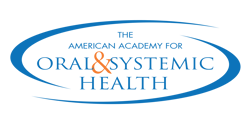Dentistry in Flux
My office is located in a medical building as part of a large local hospital system occupied by many medical physician offices. As I was walking down the hallway, I was glancing at the many physician door signages: Dr. So-and-So, CARDIOLOGIST, Dr. So-and-So ENDOCRINOLOGIST, Dr. So-and-So DERMATOLOGIST, and so on.
As I got to my office, my office signage read, Dr. Steven Jaksha, DENTISTRY, which caught my attention. It quickly brought me back, some 30 years ago, when I had introduced myself to someone as “Dr. Jaksha” and after a short discussion, they responded with “Oh, you’re a dentist. I thought you were a doctor.” This observation re-opened that professional wound: Why is there a difference in dental and medical professions?
Why has the general public, and even the medical professional community, placed a mental separation between a medical doctor and a dental doctor? Even today, our medical physician friends enjoy a different level of recognized professionalism in insurance diagnostic/billing procedures and prescription writing latitude that dentists do not enjoy.
Dentists: Second-Class Doctors?
Certainly, dentistry has advanced with great schools and specialist education, with specialties that glean a strong, positive modern day public image. We do not have the large dental systems like the medical community, but rather numerous decentralized “private practices.” We share the “doctor” title with our physician brethren but do not share in the equality of our degrees and knowledge.
Don’t believe this?
As a dentist, go write a prescription for the birth control Ortho-Novum and watch the pharmacists deny your script because it is not within the scope of your profession. Right or wrong, take that same scenario with a doctor-MD who writes the same script and it is filled without question. Here is the issue: that MD is a psychiatrist, with 35 years in practice, who has not clinically touched a patient other than psychologically and prescribing neuro-psychiatric medications that are within the scope of their practice. That psychiatrist MD does not practice anything close to internal medicine, family practice, or OB-GYN treatment, but their script was filled without question and the doctor-dentist’s was not.
What has happened here?
The answer is simple. The public and professional perception is that the medical degree is greater than the DDS/DMD degree. Again, it appears that there is a public and professional difference between the doctor-dentist and the doctor-physician.
The Case for Interdisciplinary Care
Let me share with you a recent story in which I had a mutual wheelchair-bound patient with a cardiologist who was treating this patient for two prior heart attacks with a variety of medications and prior surgery. I was seeing the patient for multiple lost, painful fractured, decayed teeth, complicated with poor hygiene that created a significant periodontal condition. Part of my treatment plan was to initially coordinate an oral hygiene program supported with the reversing fractured/decayed teeth. The patient’s wife told me that the cardiologist did not want the patient’s teeth cleaned for fear of some endocarditis concerns.
Endocarditis is a definite concern, but one that can be overcome with proper treatment oversight. I contacted the cardiologist to discuss how we can handle this situation. The cardiologist was adamant that no teeth cleaning should be performed for fear of creating a bacterial septicemia.
I was quick to point out that the patient was probably already septic due his active Class 3 periodontitis (pocketing, bleeding and with purulent exudate). It was also probably the reason why the patient’s CBC showed a strong white blood count with a banding left-shift.
Complete silence on the cardiologist’s end.
I continued by telling him that since, in my professional opinion, the patient was already septic from this active unattended periodontitis and that no medical professional had diagnosed this oral infection, he could easily suffer a severe case of infective endocarditis. Not only would the cardiologist have to deal with the patient but also the potential litigation from the family—using an odontologist as the expert witness—testifying about the unattended, yet known, periodontitis. The cardiologist quickly said, “That makes sense to me. Go right ahead with your treatment, doctor.”
Odontology as a Medical Specialty
I would like to encourage this younger generation of dentists to aggressively start a new professional mindset. Never forget the past, but get away from the old 1846-mindset and realize that dentistry is actually a specialty within medicine and that each present-day dental specialty (endodontics, periodontics, orthodontics, etc.) is actually a sub-specialty. Just like cardiology is a medical specialty but there are sub-specialties within that, like pediatric cardiology.
We need to get into a medical mindset, pressing our odontology specialty under the existing medical umbrella. Dental and medical education is terribly expensive, so incorporating the odontology specialty into medicine would simply start in medical school. Medical students would continue to go through “rotations” and then compete for all the specialty residencies which would now have odontology as a specialty option. No longer would our profession be the lost child but rather return to the larger and complete medical community it belongs in.
In the spirit of changing to this “medical mindset“ I made it a point to change my office signage to STEVEN JAKSHA, D.M.D. ODONTOLOGY, ORAL DISEASES, TMJ/TMD. I encourage my colleagues to do the same.
We need to remember that our lives, like our professions, are in constant flux, dynamically changing where research, technique, instruments and materials improve. Dentistry and medicine of today are not even close to what they used to be, and in another 100 years, it will improve even more. But remember the old saying by Lao Tzu: "The journey of a thousand miles begins with one step."
